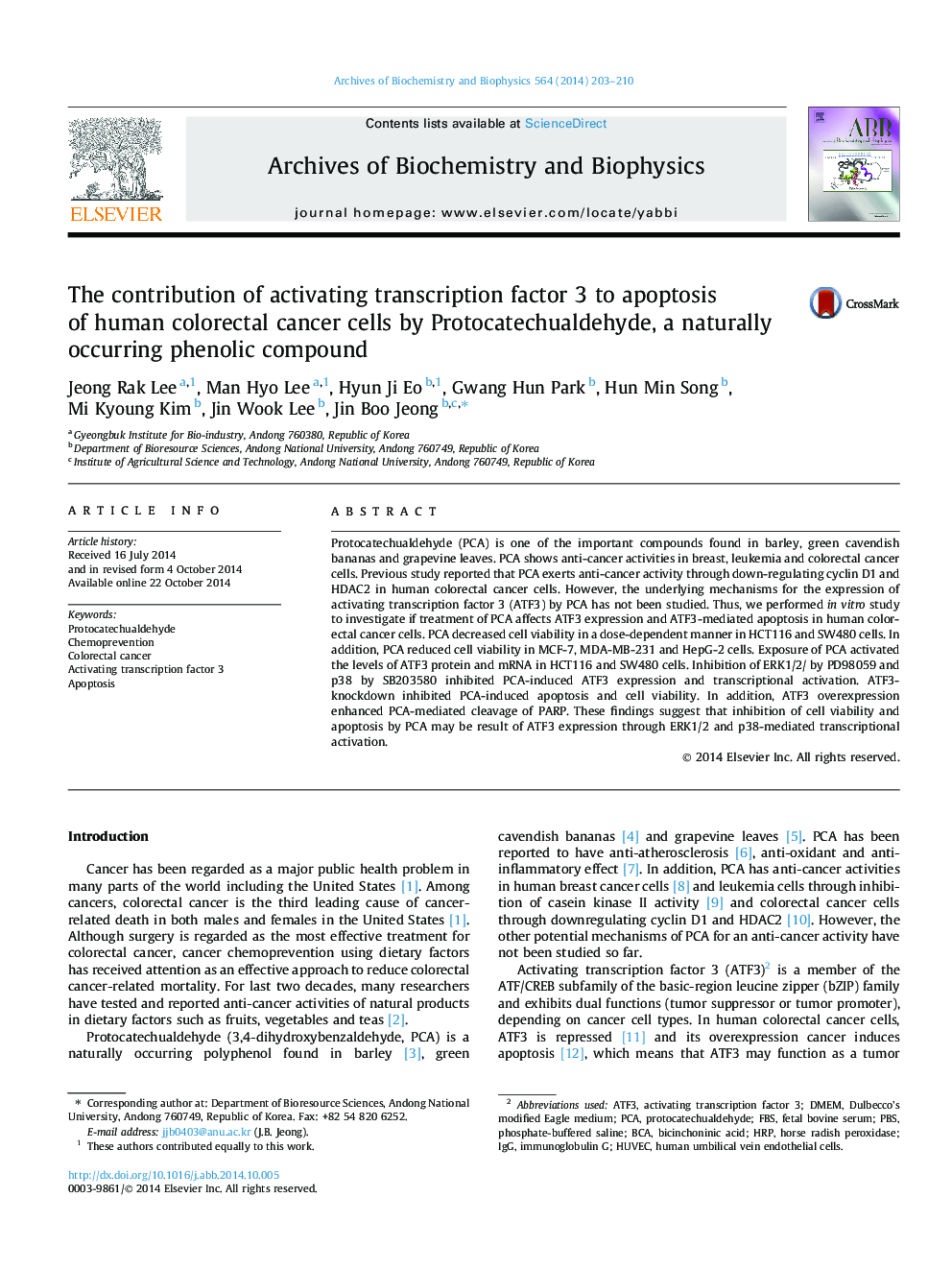| کد مقاله | کد نشریه | سال انتشار | مقاله انگلیسی | نسخه تمام متن |
|---|---|---|---|---|
| 8290120 | 1536338 | 2014 | 8 صفحه PDF | دانلود رایگان |
عنوان انگلیسی مقاله ISI
The contribution of activating transcription factor 3 to apoptosis of human colorectal cancer cells by protocatechualdehyde, a naturally occurring phenolic compound
ترجمه فارسی عنوان
سهم فعال سازی عامل رونویسی 3 به آپوپتوز سلول های سرطانی قفسه سینه انسان توسط پروتکتاتوفالدئید، ترکیب طبیعی فنولیک
دانلود مقاله + سفارش ترجمه
دانلود مقاله ISI انگلیسی
رایگان برای ایرانیان
کلمات کلیدی
پروتکاتوکوالدئید، پیشگیری شیمیایی، سرطان روده بزرگ، فعال سازی عامل رونویسی 3، آپوپتوز
موضوعات مرتبط
علوم زیستی و بیوفناوری
بیوشیمی، ژنتیک و زیست شناسی مولکولی
زیست شیمی
چکیده انگلیسی
Protocatechualdehyde (PCA) is one of the important compounds found in barley, green cavendish bananas and grapevine leaves. PCA shows anti-cancer activities in breast, leukemia and colorectal cancer cells. Previous study reported that PCA exerts anti-cancer activity through down-regulating cyclin D1 and HDAC2 in human colorectal cancer cells. However, the underlying mechanisms for the expression of activating transcription factor 3 (ATF3) by PCA has not been studied. Thus, we performed in vitro study to investigate if treatment of PCA affects ATF3 expression and ATF3-mediated apoptosis in human colorectal cancer cells. PCA decreased cell viability in a dose-dependent manner in HCT116 and SW480 cells. In addition, PCA reduced cell viability in MCF-7, MDA-MB-231 and HepG-2 cells. Exposure of PCA activated the levels of ATF3 protein and mRNA in HCT116 and SW480 cells. Inhibition of ERK1/2/ by PD98059 and p38 by SB203580 inhibited PCA-induced ATF3 expression and transcriptional activation. ATF3-knockdown inhibited PCA-induced apoptosis and cell viability. In addition, ATF3 overexpression enhanced PCA-mediated cleavage of PARP. These findings suggest that inhibition of cell viability and apoptosis by PCA may be result of ATF3 expression through ERK1/2 and p38-mediated transcriptional activation.
ناشر
Database: Elsevier - ScienceDirect (ساینس دایرکت)
Journal: Archives of Biochemistry and Biophysics - Volume 564, 15 December 2014, Pages 203-210
Journal: Archives of Biochemistry and Biophysics - Volume 564, 15 December 2014, Pages 203-210
نویسندگان
Jeong Rak Lee, Man Hyo Lee, Hyun Ji Eo, Gwang Hun Park, Hun Min Song, Mi Kyoung Kim, Jin Wook Lee, Jin Boo Jeong,
